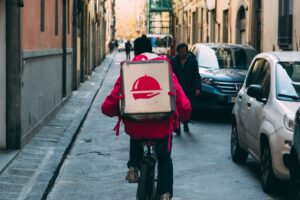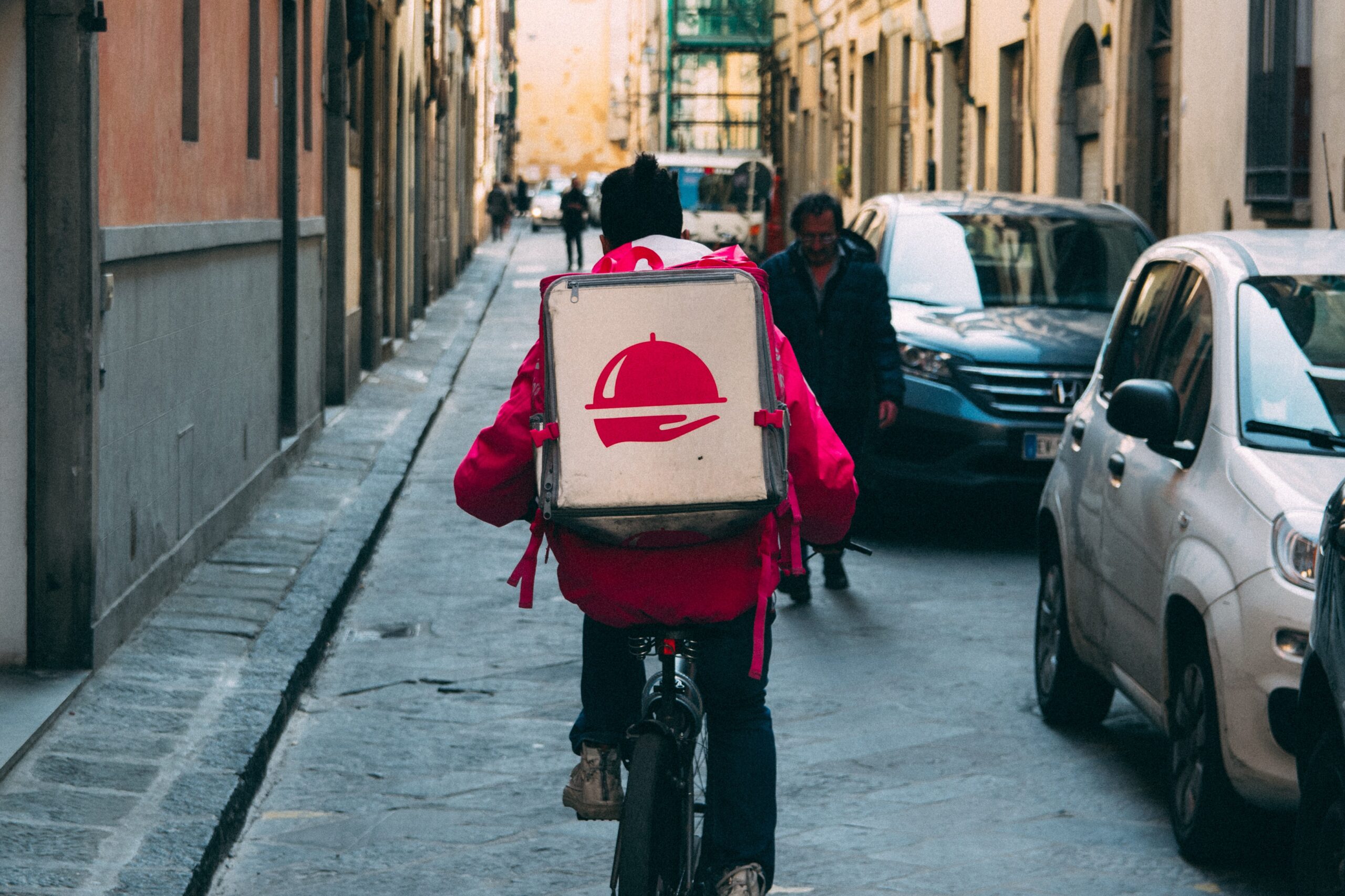4 February 2021
Food for thought
by Peter Carty
 It comes as little surprise that Deliveroo is set to IPO in the next few months. Its most recent investment round took its value to over $7 billion and the public offering will likely be one London’s largest in recent years.
It comes as little surprise that Deliveroo is set to IPO in the next few months. Its most recent investment round took its value to over $7 billion and the public offering will likely be one London’s largest in recent years.
It’s another gig economy success story. The ex-Morgan Stanley employee, who struggled ordering takeout food each evening, decided to do something about it. Will Shu has come a remarkably long way since 2013, starting off with nothing more than a bicycle and investing heavily since then in building a technology platform.
Having spent my working life in technology and been fortunate to have lived through a period of unprecedented technological development, I am a big advocate of using technology to improve our lives.
But at what cost to those who are required to perform the manual labour. What about those making and delivering the food? I ask myself, who is benefiting from the Deliveroo’s, the Just Eats and all the other companies that have built tech platforms to satisfy the needs of our growing ‘on demand’ society.
For me, these platforms provide the wealthier in society the digital equivalent of Landed Gentry Estates which historically employed low paid workers to cater to the owners’ every whim, keeping the Gentry comfortable and avoiding any need for them to get their hands dirty.
Is this not enabling those with disposable income to “improve” their lives at the expense of lower skilled, poorer people in society? Would the model work if those working at the coalface were paid higher wages?
No doubt people across the world will have benefited from delivery services during lockdowns. Sitting in the comfort of their warm and dry homes, browsing various menus, their only problem deciding on the cuisine to have. With a few clicks, their food will arrive within minutes. Hot and ready to eat, there is minimal fuss and hardly any washing up, all at a very reasonable cost. Oh, how difficult our lives have become, working from home and not being able to visit the local pub or our favourite restaurant.
A neighbour’s son signed up to be a delivery rider after losing his graduate job due to the pandemic. He reported back that, on average, he worked 3 hours of an 8 hour ‘shift’ and was giving up, it was not worth it. Fortunately, he is able to live at home and get food and shelter. Many don’t have that luxury and end up working extraordinary long hours to stay afloat.
A friend’s daughter mentioned she gets food delivered several times a week. I asked if she knew how little riders earn and if she gave them a tip. Her response: “I wish I could afford to”.
My son has been cycling at weekends and has been stopping for a takeaway coffee. But with regular twenty-minute queues of delivery riders waiting for orders, he’s no longer prepared to wait. So, we have reached the stage where people get a single coffee delivered to their home, just as the landed Gentry would ring a bell to get their afternoon tea delivered to them.
Some food service companies are investing in so called ‘dark kitchens’. These “manufacturing” sites are located away from expensive high streets, with multiple food outlets sharing industrial kitchen facilities. The idea is to produce food at the lowest cost possible, the work being regimented and controlled with software monitoring every stage of the process.
Countries across the world have had to impose lockdowns to control the pandemic, resulting in a significant rise in home delivery; restaurants struggling to survive have had to adjust to stay afloat. With this growth we are seeing the delivery companies going public, raising funds to invest further in their technology platforms. Doordash went public on December 9th and watched it’s shares rise over 80%. Investors and founders will make lots of money while providing the better-off with more choice and convenience.
The pandemic has been devastating for all of society. However, it has particularly impacted the lower paid, less well-off who have had to continue working. The consequences have been devastating for these ‘front line’ workers, with far higher levels of infection, illness and death.
Surely, we need our governments to intervene in this sector by
- ensuring everyone is paid the minimum hourly wage for the hours they are at work, including the hours riders are waiting
- regulating “dark kitchens” to ensure they provide a suitable working environment with the necessary light and space
It may mean higher delivery costs. It may limit the speed the delivery gig economy can expand. But it’s a small price to pay for living in a civilised society where we don’t continue to improve the lives of the rich at the expense of the poor.
Tile photo by Kai Pilger on Unsplash


